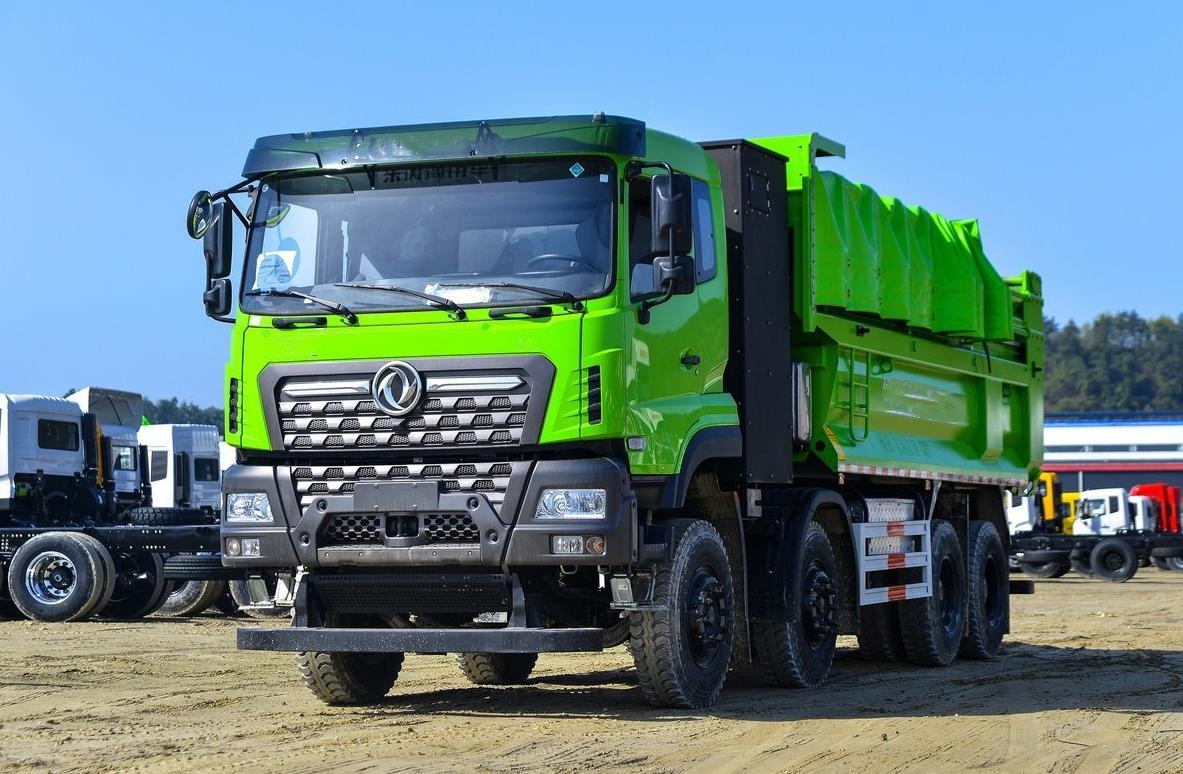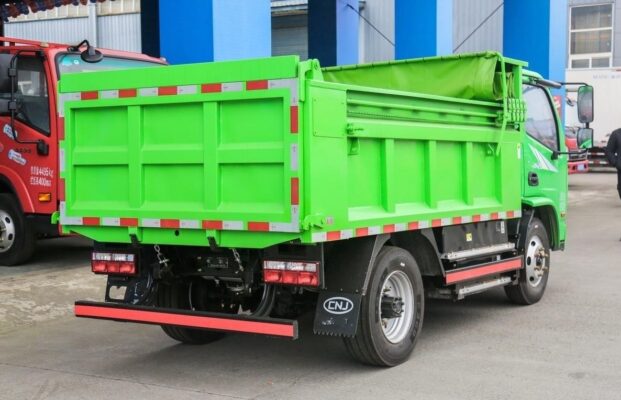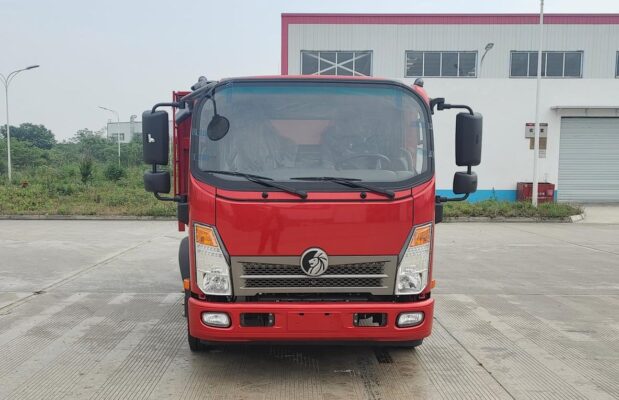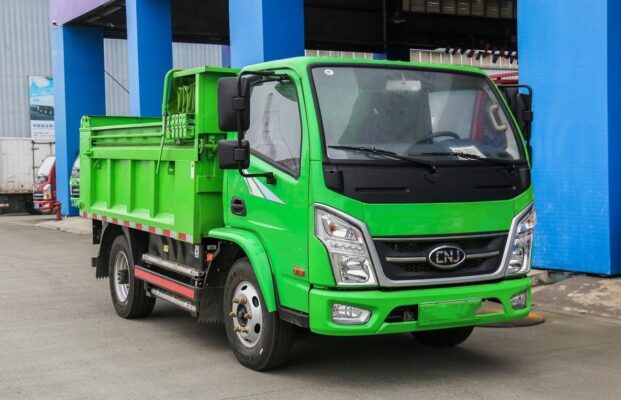ელექტრო სატვირთო ახალი ამბები
Why Do Electric Vehicles Have High Torque?
Electric vehicleს (EVs) have become increasingly popular due to their numerous advantages, such as environmental benefits, low operating costs, and high-performance characteristics. One of the standout features of EVs is their impressive torque, which plays a significant role in their superior acceleration and driving experience. In this article, we will explore why ელექტრო მანქანაs produce more torque compared to traditional vehicles, the advantages that high torque brings to EVs, and some of the challenges that come with it.
1. Why Do Electric Vehicles Generate More Torque?
Electric vehicles generate higher torque than their internal combustion engine (ICE) counterparts, and this difference is primarily due to the unique characteristics of the electric motor. Below are the key reasons why electric vehicles can achieve significantly higher torque outputs:
1.1 The Characteristics of Electric Motors
The electric motor’s torque characteristics differ fundamentally from those of an internal combustion engine. One of the primary advantages of electric motors is their ability to produce maximum torque instantly. When the driver presses the accelerator in an electric vehicle, the electric motor provides immediate torque, which results in rapid acceleration.
In contrast, internal combustion engines require time to build up torque. They rely on traditional gearboxes to regulate power delivery, which means that the torque output increases gradually as the engine revs up. Electric motors, თუმცა, provide full torque from the moment they start spinning, without the need for a complex transmission system. This immediate torque response gives electric vehicles a significant performance advantage, especially in situations where quick acceleration is required, such as overtaking or city driving.
1.2 High Energy Conversion Efficiency of the Battery
Electric vehicles are powered by batteries that store electrical energy. The energy conversion efficiency of electric vehicles is significantly higher than that of traditional gasoline-powered vehicles. The battery can quickly convert stored electrical energy into mechanical power, allowing the electric motor to generate high torque in a short amount of time.
Unlike internal combustion engines, which lose much of their energy as heat, electric vehicles can transfer a larger portion of the energy to the wheels, resulting in superior torque output. This efficiency is one of the key reasons why EVs can achieve impressive acceleration without compromising energy usage.
1.3 Precision Torque Control with Electric Motors
Another reason electric vehicles are capable of generating high torque is the level of control they have over the electric motor’s performance. The motor’s output is managed by sophisticated electronic controllers, which allow for precise regulation of torque. The electronic control unit (ECU) continuously adjusts the power output of the electric motor based on factors such as throttle position, vehicle speed, and road conditions.
This allows for highly flexible and dynamic torque delivery. The motor can adjust in real-time to provide the optimal amount of torque based on the driver’s inputs, ensuring smooth acceleration and optimal performance in various driving conditions. This precise control is one of the reasons electric vehicles feel so responsive and agile compared to traditional vehicles with combustion engines.
2. What Are the Advantages of High Torque in Electric Vehicles?
The high torque produced by electric vehicles offers several distinct advantages that contribute to the overall performance and usability of the vehicle. These advantages make EVs a highly desirable choice for consumers, especially for those who value powerful performance and responsive handling.
2.1 Strong Acceleration Performance
One of the primary benefits of high torque is the exceptional acceleration capabilities of electric vehicles. Since electric motors provide maximum torque from a standstill, EVs are capable of rapid acceleration. Whether it’s starting from a traffic light or accelerating onto a highway, electric vehicles deliver powerful thrust in an instant.
This strong acceleration not only enhances the driving experience but also gives electric vehicles a competitive edge in urban environments, where quick bursts of speed are often necessary to navigate traffic. The instant power delivery allows EV drivers to change lanes quickly, overtake other vehicles, and move smoothly through stop-and-go traffic.
2.2 Excellent Hill-Climbing Ability
Another advantage of high torque in electric vehicles is their ability to handle steep inclines with ease. Electric vehicles perform particularly well in hilly or mountainous areas, where their high torque ensures that the vehicle can maintain a steady speed without losing power or struggling to climb steep hills.
Whether it’s driving on mountainous terrain or navigating an incline on a highway, electric vehicles can provide consistent and reliable power. Unlike traditional vehicles, which may experience a drop in performance as they climb steep grades, electric vehicles can maintain full torque and drive up hills efficiently.
2.3 Enhanced Towing and Hauling Capacity
Electric vehicles are also well-suited for towing and hauling due to their high torque output. High torque allows electric vehicles to pull heavy loads with minimal strain on the motor. This is particularly advantageous for EVs used in commercial applications such as delivery trucks, logistics, and industrial vehicles.
Because electric motors can deliver torque continuously, without the need for shifting gears or revving up, EVs are excellent at maintaining a steady pace when pulling trailers, carrying large cargo, or towing boats and recreational vehicles. This makes electric vehicles a viable alternative for industries where heavy-duty towing and hauling capabilities are required.
3. What Are the Challenges of High Torque in Electric Vehicles?
While the high torque produced by electric vehicles offers several advantages, it also presents some challenges. These challenges primarily concern energy consumption, heat management, and system design, and they require careful engineering to ensure that the vehicle performs optimally without compromising durability or efficiency.
3.1 Energy Consumption and Range
One of the biggest challenges associated with high torque output in electric vehicles is the significant impact it has on battery energy consumption. While high torque allows for excellent acceleration and towing performance, it also requires more energy from the battery. As a result, when electric vehicles are frequently operating at high torque levels, they tend to drain the battery faster, which can reduce the vehicle’s overall driving range.
To mitigate this issue, EV manufacturers are continuously working to improve battery efficiency and energy management systems. Advances in battery technology, such as the development of higher-density lithium-ion batteries, are helping to increase energy storage capacity while reducing weight. დამატებით, software algorithms are being developed to optimize power delivery, ensuring that the vehicle only uses as much power as necessary to maintain performance while conserving battery life.
3.2 Heat Management
Another challenge of high torque in electric vehicles is the generation of heat. When electric motors are under heavy load or high torque conditions, they tend to produce more heat. Excessive heat can degrade the performance of the motor and the battery, potentially leading to reduced efficiency, overheating, or even damage to the components.
To address this issue, manufacturers implement advanced thermal management systems that include cooling systems for both the motor and the battery pack. Liquid cooling systems, heat exchangers, and thermal insulation materials are commonly used to keep temperatures within safe operating limits. This ensures that the motor and battery continue to perform optimally, even under high-demand driving conditions.
3.3 System Design and Optimization
Achieving high torque output in an electric vehicle requires careful system design and integration. The electric motor, battery, and power control unit must all work in harmony to deliver the desired performance. This requires precise engineering to ensure that the motor can generate sufficient torque while maintaining energy efficiency, the battery can provide enough power for high torque demands, and the control system can manage the output without overwhelming any single component.
მეტიც, the mechanical components, such as the transmission or gearbox, must be optimized to handle the high torque levels generated by the motor. Unlike traditional internal combustion engine vehicles, which rely on complex transmissions to regulate torque, electric vehicles often use simplified drivetrains, but these too must be designed to handle high torque without wear or damage.
4. დასკვნა
Electric vehicles generate high torque due to the unique characteristics of electric motors, which provide instant and continuous torque from the moment the driver applies the accelerator. This capability allows electric vehicles to offer superior acceleration, hill-climbing ability, and towing capacity compared to traditional gasoline-powered vehicles.
თუმცა, while high torque offers many benefits, it also brings challenges related to energy consumption, heat management, and system design. Manufacturers continue to develop innovative solutions to address these challenges, and ongoing advancements in battery and motor technology are helping to improve the overall efficiency and performance of electric vehicles.
As the electric vehicle market continues to evolve, the combination of high torque performance and ongoing technological advancements will make electric vehicles even more attractive for consumers who value both power and efficiency. With their superior driving dynamics and environmentally friendly features, electric vehicles are poised to become the future of transportation.




